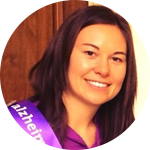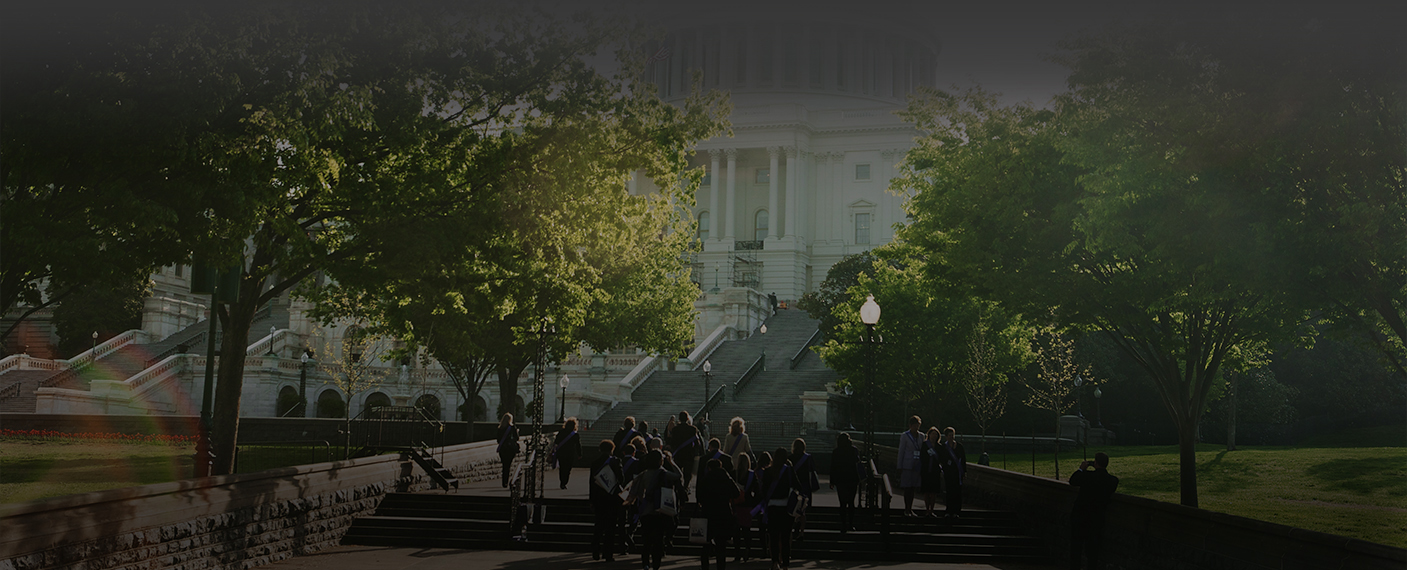Mackenzie Kelley
Mackenzie Kelley, 27, saw her mother pass away from Alzheimer's in September 2012 at age 60, after a nine-year battle with the disease. She is co-founder and co-president of the Young Champions, an Alzheimer's advocacy group in Minneapolis.
Is there any way you can describe the impact Alzheimer's has had on your family?
My mom was just 60 when she passed away, so we've lived much of our lives affected by this disease. My brother, Charlie, was in middle school when she was diagnosed and a high school senior when she had to move into a memory care facility, where she lived for about three years. I'd just started my first job out of college when I found myself taking a leave of absence to go back to Wisconsin and help care for my family as we found a place for my mom to live. This journey we've taken with our mother and her disease has had an incredible impact on our lives.
Our mom was a nurse and dedicated her entire life to caring for her family, friends and patients. Then, suddenly, she was the one who had to rely on us. She was always leading volunteer projects at our schools, driving us everywhere, cheering us on at every game, but she slowly lost the ability to do any of that. My dad suffers from severe depression and anxiety as well, much of which was brought on by the stress of caregiving for my mom throughout all of those years.
Did you start working as an advocate while your mother was living?
Yes, I began advocating in honor of my mother once she moved to a memory care facility, so that would've been almost five years ago.
What is your role with the Young Champions? Can you provide some detail about the group and what it does?
We started the group about 4.5 years ago. The Young Champions are dedicated to changing the face of Alzheimer's disease by engaging our peers and raising awareness across generations. We all have different backgrounds and connections to the disease, but we share the same goal, which is engaging the next generation in the fight to end Alzheimer's. We have four different committees — advocacy, fundraising, PR and marketing, and education and volunteering — that work on different events, activities and initiatives throughout the year. Last year, we had seven Young Champions from Minnesota attend the Advocacy Forum. One of our biggest and most successful events has been Blondes vs. Brunettes®, which we got going in the Twin Cities two years ago after learning about it at one of the Forums. After two seasons, we've already raised over $250,000.
How many Forums have you attended?
I've been to three Forums. I absolutely love each time I'm there.
At last year's Forum, you met with a staffer from the office of Sen. Al Franken (D-Minn.). What was that like?
I always enjoy meeting with Sen. Al Franken and his staff. First of all, they provide breakfast! It's a fun tradition they do each Wednesday for their constituents who happen to be visiting D.C. Sen. Franken and his staff are very supportive of Alzheimer's, and his staff is willing to help, so it makes for an enjoyable and hopefully productive meeting.
Apart from Hill Day, what are some of your other favorite aspects of the Forum experience?
I love meeting people, especially other young people, from around the country who share similar stories and experiences and who are joining together to fight for the same cause. It's so uplifting to see such a large group of young people wanting to make a difference, and I love being a part of that. It's great going back each year and reconnecting with friends you've made at previous Forums. I also enjoy the National Dinner, because I think that's such a neat thing for all of us to experience.
What would you say to someone who was considering attending the Forum but maybe wasn't sure?
The Forum is a great experience and one you won't regret! After attending the Forum, you'll come back with more knowledge about Alzheimer's and the legislative process, many new relationships and the motivation to make a difference. Everyone impacted by Alzheimer's would benefit from a trip to the Forum, and that would only increase our advocacy efforts across the country. The Forum really fires people up to make a difference and to go back to their home states and continue the fight to end Alzheimer's.
How do you feel your advocacy efforts, and those of fellow Forum attendees, have helped the cause?
If nothing else, we've shown our representatives just how many people are affected by Alzheimer's disease, both young and old, and emphasized that it's only going to get worse unless they make it a national priority and give it the funding needed to find treatments and a cure. I think our representatives are shocked to see a group of 20-year-olds come in to their office asking for Alzheimer's support because it's traditionally been seen as an "old person's" disease.
How optimistic are you that the Forum can help lead to Congress making Alzheimer's a national priority?
The Forum can indeed help lead to Congress making Alzheimer's a national priority, but I think what helps even more is what all of us as advocates and Ambassadors continue to do throughout the year. We need to take what we learn from the Forum and use the momentum that comes from Hill Day and do what we can back in our home states to urge our representatives to make a change and further support Alzheimer's disease.
Back to top
Back to Advocacy Stories


Join the conversation #ENDALZ #alzforum